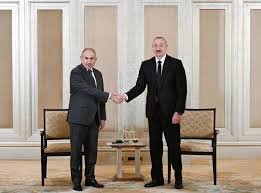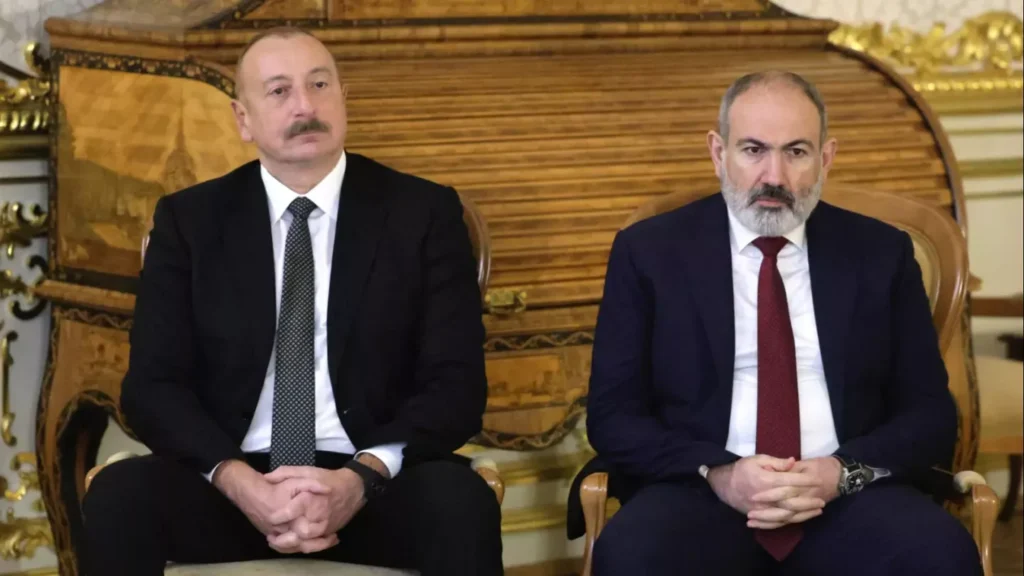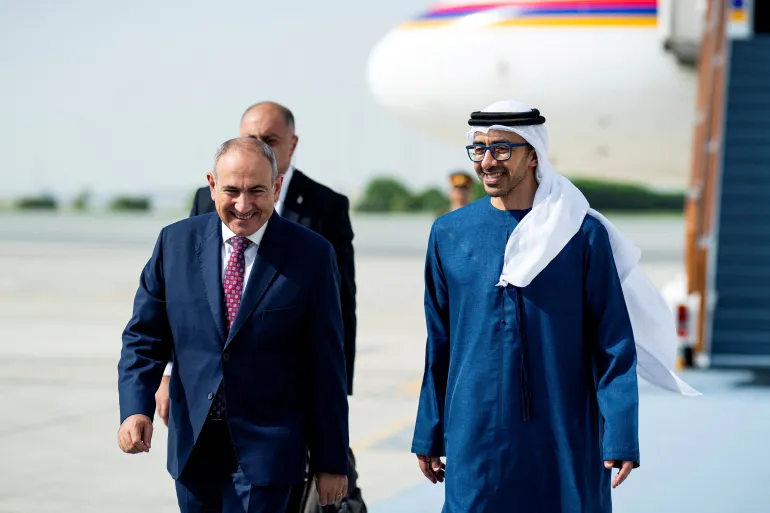A Step Towards Healing Decades of Conflict
In a significant and hopeful move for regional stability, the leaders of Armenia and Azerbaijan recently met in the United Arab Emirates to engage in peace talks. This high-level meeting marks another chapter in the long and often turbulent history between the two nations, as both sides inch closer to what many hope will be a lasting resolution to their decades-long conflict.
The UAE, with its growing reputation as a mediator in international disputes, provided a neutral and secure setting for the leaders to engage in frank and meaningful discussions. This meeting holds immense significance for the people of both countries, who have lived through years of tension, military clashes, and diplomatic stand-offs.
The Complex History Behind the Talks
The roots of the conflict between Armenia and Azerbaijan trace back to the early 20th century, intensifying over the contested Nagorno-Karabakh region. This mountainous area, internationally recognized as part of Azerbaijan but predominantly inhabited by ethnic Armenians, has been the epicenter of violence and political deadlock for generations.

Several wars and countless ceasefires have failed to bring about lasting peace. While agreements have occasionally eased tensions, none have fully addressed the grievances of both nations or the human cost of conflict — leaving families displaced, towns destroyed, and generations burdened by loss and mistrust.
The latest series of clashes in recent years reignited global concerns, leading to increased calls for both countries to find a durable, peaceful solution.
Why the UAE Was Chosen as a Host
In recent years, the United Arab Emirates has steadily carved out a name for itself as a diplomatic hub for international dialogue and mediation. Its neutral foreign policy stance, modern infrastructure, and commitment to regional peace have made it a preferred location for high-stakes negotiations.
The UAE’s leadership has consistently emphasized the importance of peaceful coexistence and conflict resolution. Hosting talks between Armenia and Azerbaijan is not only a testament to the country’s diplomatic ambitions but also a meaningful contribution to fostering peace in a region historically plagued by unrest.
Choosing the UAE allowed both parties to step away from the immediate pressures of their borders, offering a fresh environment conducive to open conversation and compromise.

The Atmosphere of the Peace Talks
Sources close to the negotiations described the atmosphere as cautiously optimistic. While deep-seated mistrust still lingers, both delegations reportedly approached the discussions with a readiness to explore mutual understanding and practical solutions.
The meeting focused on several pressing issues, including border demarcation, security arrangements, the return of prisoners, and opening regional trade routes. These topics are critical for laying the groundwork for a comprehensive peace agreement, with tangible benefits for both nations’ economies and citizens.
While no final agreement was signed, the fact that both leaders sat down face-to-face in a spirit of dialogue is, in itself, a breakthrough. The leaders reaffirmed their commitment to continue negotiations and agreed to future meetings to maintain momentum.
Voices from Armenia and Azerbaijan
Across both nations, ordinary citizens have followed the developments with a mixture of hope and caution. For families affected by past conflicts, these talks represent a chance for closure and healing.
In Armenia, many have expressed a desire for the country to move past the cycles of war and to focus on rebuilding communities and restoring ties with neighbors. Similarly, in Azerbaijan, citizens have voiced their hopes for a peaceful resolution that respects the country’s sovereignty while fostering coexistence.
For the youth of both nations, who have grown up hearing stories of conflict, the prospect of peace opens doors to new opportunities in education, culture, and business. Many are optimistic that these talks could be the beginning of a new chapter, one defined not by rivalry, but by collaboration.
International Reactions to the Meeting
The peace talks held in the UAE were welcomed by international observers and governments around the world. Many global leaders expressed their support for the dialogue, emphasizing the importance of regional stability not just for Armenia and Azerbaijan, but for the broader South Caucasus region.
Experts highlighted that peace between the two nations could unlock economic potential, strengthen trade routes between Europe and Asia, and reduce the risk of further humanitarian crises.
The meeting also demonstrated how nations like the UAE can play an influential role in conflict resolution, offering neutral ground and diplomatic support to help ease historical tensions.
Challenges That Still Lie Ahead
Despite the positive atmosphere and mutual commitments, the road to peace remains long and complex. Deep-rooted national sentiments, historical grievances, and competing geopolitical interests continue to pose significant obstacles.
There are sensitive issues to address, such as the future of Nagorno-Karabakh, the status of displaced communities, and ensuring security for minority populations. Both sides must navigate these matters with sensitivity and a genuine commitment to lasting peace.
Additionally, regional powers and alliances will inevitably influence the direction of future negotiations. Balancing these interests while prioritizing the needs of their own people will be a delicate task for both governments.

The Human Side of the Story
At the heart of these negotiations are the people — the families divided by borders, the veterans carrying scars of conflict, and the children who deserve a future free from the shadow of war.
Stories from both sides reveal a deep yearning for normalcy. From farmers who long to return to their ancestral lands to students dreaming of studying abroad without fear of discrimination, the ordinary citizens of Armenia and Azerbaijan are united in their hopes for peace.
For too long, generations have grown up amid hostility. Now, with leaders willing to meet and talk, there’s a glimmer of hope that the future could look different.
The Importance of Continued Dialogue
Diplomatic experts often emphasize that lasting peace is not achieved in a single meeting but through consistent, honest, and inclusive dialogue. This meeting in the UAE is a promising start, but it must be followed by sustained efforts at multiple levels — from political leaders to community groups and international partners.
Future negotiations will need to address the hard questions while prioritizing humanitarian needs and the economic prosperity of both nations. Trust, once lost, takes time to rebuild, and these talks are a step in that long but vital process.
By continuing to engage, listen, and compromise, Armenia and Azerbaijan have a unique opportunity to redefine their relationship and set an example for other nations embroiled in long-standing disputes.
A Future Shaped by Peace
This meeting in the UAE has sent a powerful message to the world: that even the most bitter of rivalries can be softened through dialogue. It signals that hope endures, even after decades of conflict, and that with the right leadership and international support, peace is always possible.
For the people of Armenia and Azerbaijan, the promise of a peaceful future offers not just relief but a chance to dream of a life beyond conflict. It allows communities to imagine new partnerships, cultural exchanges, and a shared prosperity that transcends borders.
As both nations prepare for future rounds of discussions, there is cautious optimism that this process will lead to tangible outcomes. The journey to peace is rarely swift or simple, but with patience, courage, and determination, it remains within reach.
And for the many whose lives have been defined by war, even the smallest steps towards peace carry profound meaning.
Follow us on Instagram: UAE STORIES
UAE Golden Visa vs US Trump Card 2025 — Which One is Right for You?













